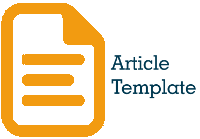QUESTION BANK CLASSIFICATION BASED ON BASIC COMPETENCE USING THE WINNOWING ALGORITHM
DOI:
https://doi.org/10.35457/antivirus.v15i2.1542Keywords:
Assessment, Question bank, Basic Competence, Winnowing, Cosine SimilarityAbstract
The world of education in Indonesia needs to prepare students to face the increasingly complex challenges of the 21st century. They must be able to think critically, creatively, innovatively and be able to solve problems. In this case, it is necessary to measure student learning outcomes by conducting assessments both in writing and orally. In a written assessment, an educator is expected to have many different question banks so that they can measure the maximum achievement of student competencies. The large number of question banks sometimes makes it difficult for educators / teachers to sort out questions to measure the extent to which students are successful in achieving certain competencies. With the winnowing algorithm, the questions in the question bank are compared with the existing basic competencies using the Jackard Similarity Coefficient to determine which basic competency questions belong to. With this research, it is hoped that it will make it easier for educators to sort out questions in the question bank and make it easier to find out student achievements in certain basic competencies.
Downloads
References
Permendikbud, Nomor 24 Tahun 2016, “Kompetensi Inti dan Kompetensi Dasar Pelajaran Pada Kurikulum 2013 Pada Pendidikan Dasar dan Pendidikan Menengah”
K. Tung, N. Hung and L. Hauh, "A Comparison of Algorithms used to measure the Similarity between two documents", International Journal of Advanced Research in Computer Engineering & Technology (IJARCET, vol. 4, no. 4, pp. 1117-1121, 2015
Rifqi, Maharani., Shaufiah. 2011. Analisis dan Implementasi Klasifikasi Data Mining Menggunakan Jaringan Syaraf Tiruan dan Evolution Strategis. Institut Teknologi Telkom Bandung.
Suwanto Sanjaya, Ersad Alfarisy Absar, “Pengelompokan Dokumen menggunakan Winnowing Fingerprint dengan Metode K-Nearest Neighbour”, Jurnal CoreIT, Vol. 1, No.2, Desember, 2015
Keputusan Dirjen Dikdasmen, Nomor 330/D.D5/KEP/KR/2017, “Kompetensi Inti dan Kompetensi Dasar Mata Pelajaran Muatan Nasional (A), Muatan Kewilayahan (B), Dasar Bidang Keahlian (C1), Dasar Program Keahlian (C2), dan Kompetensi Keahlian (C3)”.
Agung Toto Wibowo, Kadek W. Sudarmadi, Ari M. Barmawi, “Comparision Between Fingerprint and Winnowing Algorithm to Detect Plagiarism Fraud on Bahasa Indonesia Documents”, International Conference of Information and Communication Technology (ICoICT), 2013
Schleimer Saul, Wilkerson Daniel S., Aiken Alex, "Winnowing: Local Algorithms for Document Fingerprinting," in Proceedings of the 2003 ACM SIGMOD international conference on Management of data, NY, USA, 2003, pp. 76-85
A. A. P. Ratna, dkk, “ Latent Semantic Analysis and Winnowing Algorithm Based Automatic Japanese Short Essay Answer Grading System Comparative Performance”,IEEE 10th International Conference on Awareness Science and Technology (iCAST), 2019
Jarwati et al, “Penerapan Algoritma Winnowing Pada Sistem Rekomendasi Penentuan Dosen Pembimbing Skripsi (Studi Kasus Program Studi Sistem Informasi)”, Berkala Saintek 2017, V (1) : 11-20
Dedi Leman, dkk, “Rabin Karp And Winnowing Algorithm For Statistic of Text Document Plagiarism Detection”, in The 7th International Conference on Cyber and IT Service Management (CITSM 2019)
Eric Ganiwijaya Hasan, dkk, “The Implementation of Winnowing Algorithm for Plagiarism Detection in Moodle-based E-Learning”, ICIS, June 6-8, 2018, Singapore
A. A. P. Ratna, D. L. Luhurkinanti, I. Ibrahim, D. Husna, and P. D. Purnamasari, “Automatic Essay Grading System for Japanese Language Examination Using Winnowing Algorithm,” in 2018 International Seminar on Application for Technology of Information and Communication, 2018, pp. 565–569
Downloads
Published
Issue
Section
License
Authors who publish with this journal agree to the following terms:
- Copyright on any article is retained by the author(s).
- Author grant the journal, right of first publication with the work simultaneously licensed under a Creative Commons Attribution License that allows others to share the work with an acknowledgement of the work’s authorship and initial publication in this journal.
- Authors are able to enter into separate, additional contractual arrangements for the non-exclusive distribution of the journal’s published version of the work (e.g., post it to an institutional repository or publish it in a book), with an acknowledgement of its initial publication in this journal.
- Authors are permitted and encouraged to post their work online (e.g., in institutional repositories or on their website) prior to and during the submission process, as it can lead to productive exchanges, as well as earlier and greater citation of published work.
- The article and any associated published material is distributed under the Creative Commons Attribution-ShareAlike 4.0 International License











